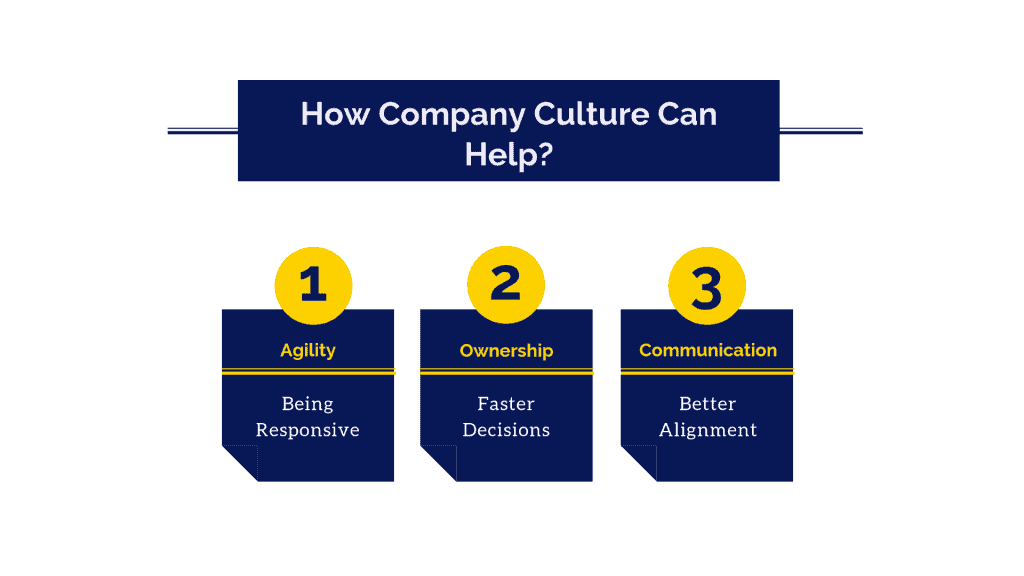For how long would a company want to be successful? Undoubtedly, the answer would be ‘always’. All companies build themselves to be successful, and their focus remains on continuous growth. However, there are enough examples of brands, big or small, that could not pass the test of time because of the business uncertainties that come with it. To put this into perspective, 88% of the Fortune 500 companies either have ceased to exist, gone bankrupt, or are no longer on the list1.
Business uncertainties in the shape of technology, people, competition, innovation, and so on, always find their way to challenge an organization. It is a challenge that companies of all shapes and sizes face. Polaroid2, an American company founded in 1937, known for its instant film and cameras, filed for bankruptcy in 2001 and it was eventually sold. It was their inability to expand and look for long-term sustainability that leads to this. Had they started exploring, and kept the uncertainties of business in mind, a new area of expertise could have emerged successfully.
Something creative and innovative eventually comes out from the risky actions companies take to tackle uncertainties. There may be various ways to conquer this, but the broader solution will always be to work on company culture.
Business Uncertainties Faced By Companies
We live in a day when consumers are being presented with innovative products every day. If anything is certain, it is that this notion of constant change. And it is only going to increase. Following are a few broad areas that affect a company and its business:
- Technology: Bill Clinton, former President of the US, once said “When I took office, only high energy physicists had ever heard of what is called the Worldwide Web… Now even my cat has its own page3”. The pace at which everything is growing is unprecedented, and if companies don’t undertake the necessary steps, they will certainly perish. Only 19% of companies in North America and 7% in Europe consider their technology level as advanced. However, 85% of decision-makers believe they need to invest in digital initiatives before falling behind their competitors4.
- Workforce Shift: With newer generations coming into the workforce, how things get managed is changing as well. Companies are working to figure out how to retain their employees, or what they need to do to keep them satisfied and productive. With multiple generations working together in an organization, things are harder to manage. For instance, the millennial generation, which is increasing its presence in the workforce, expects better work-life balance, more flexibility, and better organizational alignment. On the other hand, Gen X might look something similar in a different manner, that is, flexibility for them could mean something different. These differences pose a challenge for a company.
- Rising Competition: With globalization, the world has become smaller than ever. In addition to this, the rapid development of technology presented another opportunity for companies to establish themselves in distant areas faster. This was enough to cause insecurity to several companies, big or small. This has subsequently forced companies to adapt or face extinction. Today there are no limits to a business taking up several shapes and forms to keep growing, Amazon is selling clothes, shoes, grocery products and is at the same time producing movies. Google is not just helping us search but has begun launching its own products as well. Gone are the days when it took several years for businesses to emerge. In today’s world, if a good idea exists, there is a high chance of it reaching great heights in a comparatively shorter amount of time.
How Can Company Culture Help?
A company can have innovative, passionate, hard-working individuals in its workforce. However, all this will amount to nothing if the company culture does not support them. Organizations can tackle uncertainties by focusing and acting on things that are important, one of which is culture. The reason behind this is that a company may be aware of the uncertainties that it is facing, but it may not always be able to respond to these well. Taking initiatives that can bring more agility, ownership, and communication into the company will help all employees to tackle situations better.
For companies that focus on building a culture that takes care of tackling uncertainties, it becomes less of a challenge and more of an accepted situation. Thus, it is not about stopping the uncertainty from happening. One can never ensure that. It is about building a culture that is strong enough to tackle and fight the uncertainties in time effectively.

- Agility: The ability to be highly responsive in an uncertain environment becomes even more important. Company culture can avoid uncomfortable situations if it has an agile culture. Having said that, agility does not mean just acting fast, it also focuses on being prudent. This prudence only comes once people in the organization collectively are alert and analytical, which then ensures stability. According to a study, companies had to be high on speed index as well as stability index in order to be considered agile. Furthermore, 70% of agile culture came in the top quartile of organizational health5.
- Ownership: Companies need to be flexible when it comes to giving autonomy to employees in today’s world. Firstly, because employees work better when they have the independence to do their work. According to a study, autonomy drives employee performance, satisfaction, as well as their happiness at work6. Secondly, when employees are trusted and given independence, they tend to take charge of the situation and feel more connected to their work. They are motivated to make decisions that are going to help the company. This helps companies to anticipate uncertainties and respond to them well in or before time. That is because employees who take ownership of their work analyze, pre-empt and look for more effective ways of handling tasks. They do not wait for actions to come their way, instead, they would be the ones heading the change, and making it happen to the best of their abilities.
- Communication: Improving communication positively affects a company’s collaboration, and together they can increase an employee’s productivity by 20-25%7. In today’s world when there is an overload of information, employees can get lost if communication is not clear within their company. This further leads to misalignment in employees, lower collaboration with their colleagues and leaders, and can hamper the company’s growth. However, when a company has clear communication patterns and a common tone that flows through all employees, it becomes easier to tackle unfamiliar situations. Creating a culture that has open communication and provides space to share concerns helps companies to get more perspective. Moreover, it also helps to alter ways of working into something that will help the company succeed.
Business Uncertainty: A Road to Improvement
“It is in the admission of ignorance and the admission of uncertainty that there is a hope for the continuous motion of human beings in some direction that doesn’t get confined, permanently blocked, as it has so many times before in various periods in the history of man.”
– Richard P. Feynman, Theoretical Physicist8
In absence of uncertainties, things might go quite smooth, but it would also mean work would become extremely mundane with little space for innovation. More importantly, it is more than certain that this is not a reality in today’s world.
Blockbuster9, one of the best-known companies for movie and video games rental stores, founded in 1985, filed for bankruptcy in 2010. Why? They failed to transition into the digital world when they had the time. Netflix, which today is one of the most popular online video streaming sites, had previously gone to Blockbuster to join hands with them but Blockbuster’s CEO thought it to be a “very small niche business”, and this was during the time Blockbuster was already losing money. At the time Blockbuster went bankrupt, Netflix was a $2.2 Billion company.
Companies can remain in the delusion of ‘it’ll soon be okay’ or create a culture to stride towards growth and ensure success for themselves as never before.
References:
- https://www.collectivecampus.com.au/blog/10-companies-that-were-too-slow-to-respond-to-change
- https://www.collectivecampus.com.au/blog/10-companies-that-were-too-slow-to-respond-to-change
- https://www.brainyquote.com/quotes/william_j_clinton_131411
- http://www.advance2000.com/digital-transformation-statistics-for-business/
- https://www.mckinsey.com/business-functions/organization/our-insights/why-agility-pays
- https://hbr.org/2014/01/employees-perform-better-when-they-can-control-their-space
- https://www.qnnect.com/blog/10-eye-opening-employee-productivity-statistics
- https://www.brainyquote.com/quotes/richard_p_feynman_151727?src=t_uncertainty
- https://www.business2community.com/business-innovation/3-companies-failed-adapt-went-wrong-01895678

